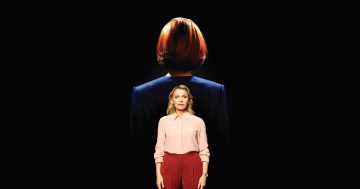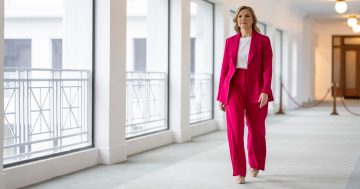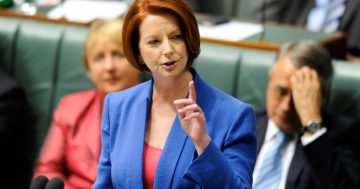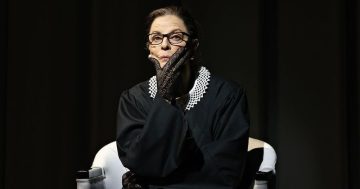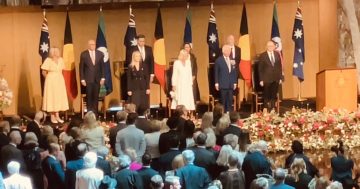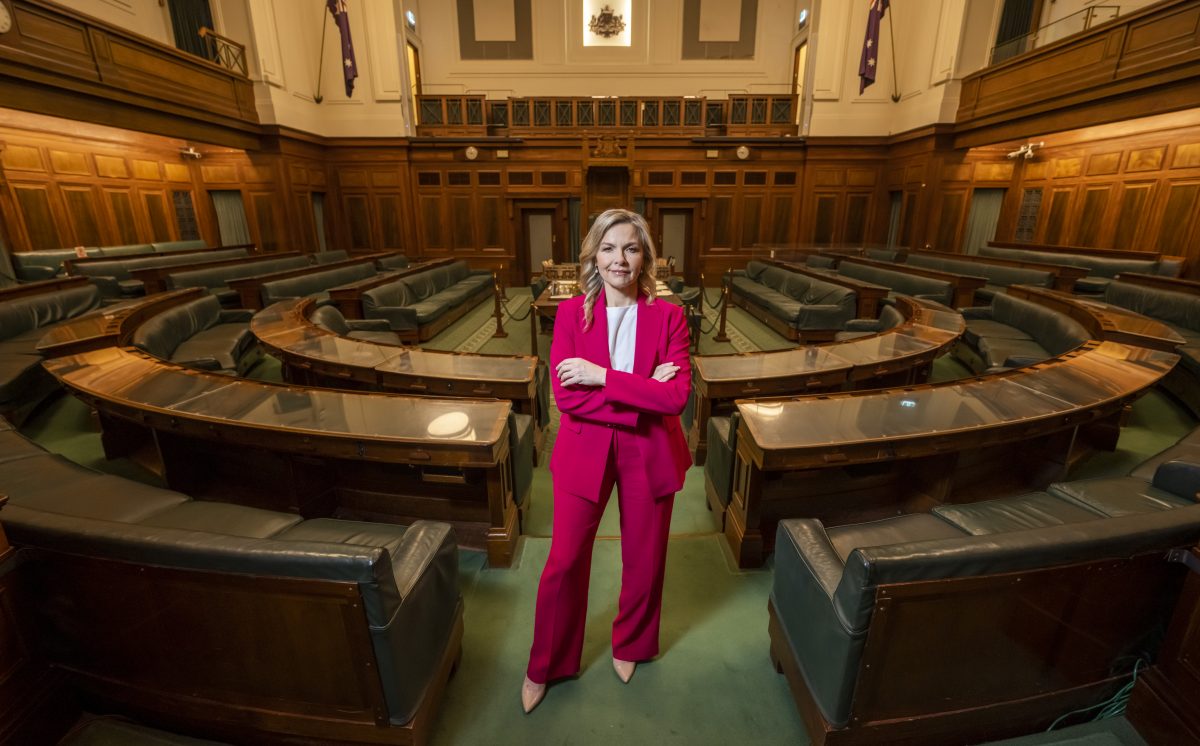
Julia is showing at Canberra Theatre Centre from 18 to 25 March 2023. Photo: Martin Ollman.
The countdown is now on to the world premiere of Julia, a landmark new play co-produced by the Canberra Theatre Centre and Sydney Theatre Company.
Together, celebrated playwright Joanna Murray-Smith, Helpmann Award-winning director Sarah Goodes and beloved actor Justine Clarke have been hard at work teasing out the life and career of Australia’s first female prime minister Julia Gillard in the lead-up to her world-famous misogyny speech.
I have been writing on the arts in Canberra for some time now and was fortunate to speak with playwright Murray-Smith late last year during the first creative development of Julia.
“I am interested in the psychological state that allowed her [Gillard] to get to that point of communicating her anger and frustration out loud,” she told me.
“The more that I have read, the more research I have conducted, I have come to understand that what Julia Gillard managed to do in her time as Prime Minister was quite extraordinary under the circumstances.”
Director Sarah Goodes, who took time out of the final rehearsal period to speak with me last week, reflects on those circumstances.
“Julia was ridiculed for her entire term in office – for her voice, her dress, her hair, for everything. No one could hear what she was saying, they could only hear how she was saying it.
“You couldn’t talk about gender without being accused of complaining. You felt like you were being tokenistically given an opportunity because there was a quota to fill. If you got angry, you were accused of being hysterical.”
The commentary made on both Gillard’s person and personal life was unlike anything we had previously witnessed regarding her male colleagues and predecessors. An exploration of this double standard sits at the core of Julia.
Goodes explains: “Some people of a particular generation think the speech was just a political battle for power or something that was just about a particular set of circumstances, which it was, of course, but what it became was so much bigger.
“The speech became a passing of the baton onto the next generation of women leading into the Me Too movement – not that you can draw a direct line between those two things – but if you think about the way movements are heralded in, it is never about just one event, it is the building of a tide that eventually breaks through.”
The task of representing those changes in our broader collective thinking, alongside a more intimate portrait of a particular person, shapes the way Goodes has thought about directing the performance given by actor Justine Clarke.
“My first impulse was that I didn’t want Justine’s performance to be an impersonation of Julia,” she explains.
“Imitation and satire are par for the course in political spaces, but when they are of a man, it is somehow seen as more robust. When it comes to satirising women, it gets nasty. There is an element that feels far more personal than it does for men.”
In guiding the character of Gillard through a combination of real events and imagined internal spaces, the creative team allows us to empathise more closely with the actual woman.
“When Justine first steps out on stage, she is a narrator. She is every woman. Throughout the piece, we see her slowly accumulating parts of Julia, evolving and transforming into her, which has been fascinating to play with and watch,” Goodes concludes.
While this play tells the story of a politician, of Australia’s first female Prime Minister, it also unpacks a universal narrative of how we deal with power, how we navigate our way through life, and ultimately what we choose to give up to follow our dreams and realise our ambition.
Julia opens at the Canberra Theatre Centre on 18 March 2023 and runs until 25 March. Buy tickets here.












